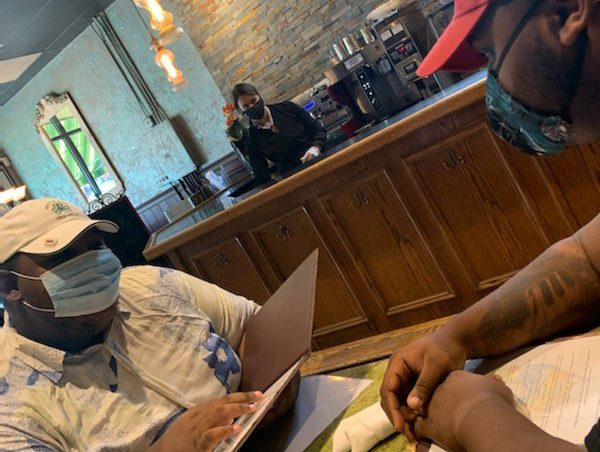UConn’s Office of Undergraduate Research each year provides Summer Undergraduate Research Fund (SURF) awards to support full-time undergraduate students in summer research or creative projects – an initiative that continues this year, despite the challenges presented by the COVID-19 pandemic.
SURF awards are available to students in all majors at all UConn campuses. The students’ project proposals are reviewed by a faculty committee representing various schools and colleges, and SURF award recipients are chosen through a competitive process. Each SURF award winner is supervised by a UConn faculty member.
This summer, UConn Today will take a look at various 2020 SURF scholars and their work.
Name: Malachi Bridges
Hometown: New Haven
Year: Rising Senior
Major: Political Science/Africana Studies
Summer research project: Bridges is performing a study called “Blacks and the American Dream,” investigating why people of color have a low rate of home ownership. The study has two focal points: The first is the measurement of the extent to which Black Americans’ social immobility is due to cultural factors or external conditions, like the federal and municipal policies that prevent Black homeownership. The second examines the effects of those disparaging laws on today’s housing markets. The goal of the project to is to provoke critical thought and provide education and resources to citizens and policymakers.
How did you decide on this area of research?
I was always interested in real estate and financial literacy, even going back to high school (at Metropolitan Business Academy in New Haven). I was part of the Yale Model Congress and presented a bill on housing, inequality, and wealth distribution. At UConn, I took a sociology class in “Race and Ethnicity” and learned about rates of housing among whites, Blacks, and Hispanics since the 1960s. Of course, whites had the highest rate of home ownership and amassed wealth because they were the first group of people allowed to own property and purchase housing. Blacks were not so far behind, especially with the passage of the Fair Housing Act in the 1970s. So, from the 1970s to the 1990s, white families had an average of about two to three times the wealth of an average Black or Hispanic family. Then we saw how those numbers have changed. Currently, the difference in wealth amassed by white families is almost six times that of Black families. So, the question is why we think that the white population continues to growth in wealth and home ownership, and even Hispanic populations are growing, but Black home ownership lessened after the 1990s. That really is how my research started.
How are you performing this research?
I am doing interviews with people in the New Haven area because I want to get a first-person account of experiences while buying homes. I hope that will support the initial claims in my thesis, which speak on the initiatives by our government to prevent Black home ownership. I argue that a lot of the initiatives in specific urban cities have contributed to the collective economic destitution. I also talk about urban containments, in which cities constructed neighborhoods to confine Black people into pockets of poverty. In addition to the interviews, I am studying the likelihood of families leaving a city for more opportune areas. I am using New Haven court documents and ancestry.com for that.
How has the COVID-19 pandemic affected your work?
I promoted my study on my social media platforms and scheduled meeting with people who contacted me. I was planning on doing only five or six interview at first, because that was not the crux of my research. But there was so much interest and so many people wanted to voice their experiences and concerns about purchasing a home. Then there are some people who refuted my clams in some aspect, and I still wanted to include them because this is not a one size fits all study. I will probably do eight to ten interviews, which I am very excited about, but I am definitely missing the in-person interaction. We are doing them virtually or over the phone. There are some things that happen naturally inside a conversation that are very hard to get over the phone because I can’t see the body language or sense the change in mood. But, it has been working pretty well despite the hardships.
What will be the final form of your research?
I will be writing a final paper that will also serve as my honors thesis. I would also like to do an exhibit, but we don’t know how feasible that will be yet with social distancing at school this fall. I want to ensure that my work is so well done that it can be used as a reference and used in academic journals. I am very passionate about home ownership myself. My parents own their home and they had to go through a lot of the same things I talked about to do that. When I graduate from college, I want to purchase a home.
What are your future plans?
I will graduate in May 2021 and I am already enrolled in a master’s of public administration program and will finish that in 2022. One day, I plan on opening my own real estate firm and conglomerate. I also want to launch a non-profit organization that has an educational component about financial literacy, credit, and home ownership. I want to facilitate workshops and provide programs to increase Black and Brown home ownership in New Haven. After that is all over, I might want to be mayor of New Haven!



